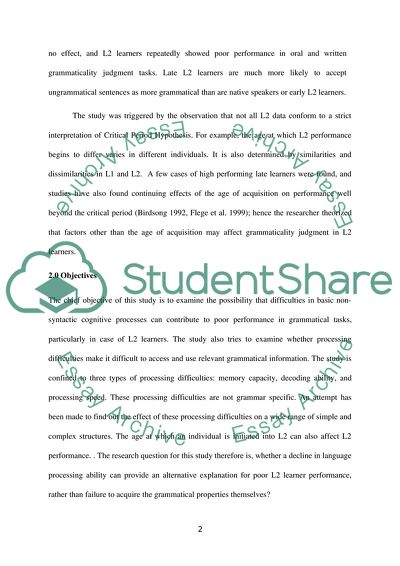Cite this document
(Processing Based Explanations for Poor Grammaticality Judgment Coursework Example | Topics and Well Written Essays - 3000 words, n.d.)
Processing Based Explanations for Poor Grammaticality Judgment Coursework Example | Topics and Well Written Essays - 3000 words. https://studentshare.org/education/1734027-beyond-the-critical-period-an-essay-format
Processing Based Explanations for Poor Grammaticality Judgment Coursework Example | Topics and Well Written Essays - 3000 words. https://studentshare.org/education/1734027-beyond-the-critical-period-an-essay-format
(Processing Based Explanations for Poor Grammaticality Judgment Coursework Example | Topics and Well Written Essays - 3000 Words)
Processing Based Explanations for Poor Grammaticality Judgment Coursework Example | Topics and Well Written Essays - 3000 Words. https://studentshare.org/education/1734027-beyond-the-critical-period-an-essay-format.
Processing Based Explanations for Poor Grammaticality Judgment Coursework Example | Topics and Well Written Essays - 3000 Words. https://studentshare.org/education/1734027-beyond-the-critical-period-an-essay-format.
“Processing Based Explanations for Poor Grammaticality Judgment Coursework Example | Topics and Well Written Essays - 3000 Words”. https://studentshare.org/education/1734027-beyond-the-critical-period-an-essay-format.


